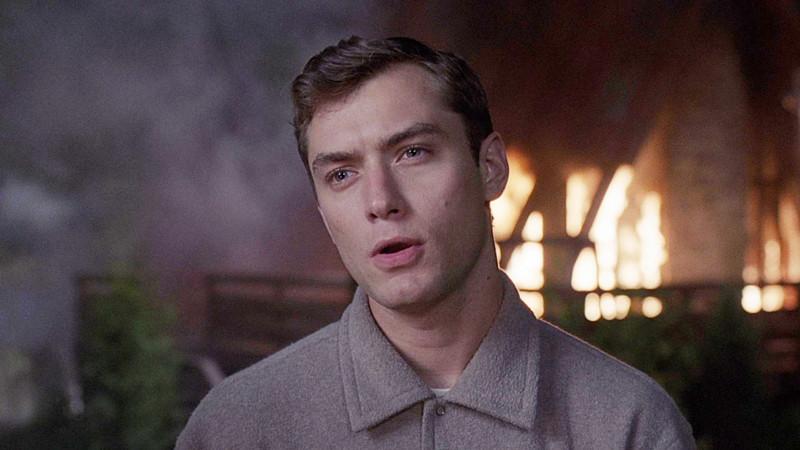
David Cronenberg has been the mastermind behind some of the most iconic horror films to ever grace the silver screen. Over his long career, he’s thoroughly examined the extremities and repulsive nature of the human body, cribbing from high and low genre tropes to probe how it reacts to mutation, sickness and science against the quickening pace of technological development. His own metamorphosis from national pariah to a globally renowned visionary has been nothing short of remarkable. Nowadays, his name is firmly entrenched in the upper echelons of cinema history, synonymous with the genre that he personally pioneered if not taken full ownership of — body horror.
Though far from being a one trick filmmaker, Cronenberg’s interests have mostly remained intact throughout the decades. ‘Crimes of the Future’, his first feature film after an eight-year leave of absence, marks something of a return to form for the Canadian auteur. On this special occasion, we have decided to delve back into his gruesome repertoire. From ‘Shivers’ to ‘Crash’, we’re ranking every David Cronenberg film — spanning his low-budget classics, forgettable duds and the gems in between.
22. Fast Company (1979)
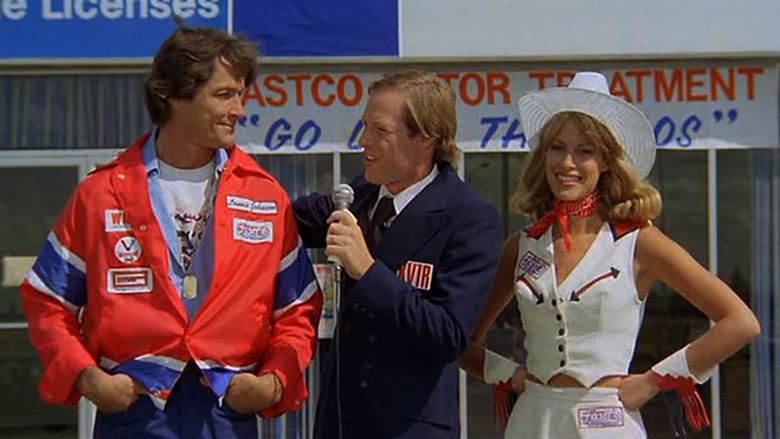
Kicking things off, we turn to Cronenberg’s first foray outside the horror genre, a film that’s fallen out of favor even among the director’s most rabid fans. And not without good reason — in a rich body of work full of overriding themes and a consistent set of artistic obsessions, ‘Fast Company’ sticks out as a sore thumb as a vapid work for hire.
In a vacuum, if any other director had helmed this testosterone-heavy, drag racing film, it probably would have passed as a fairly enjoyable, if somewhat sterile, watch. But within the framework of Cronenberg’s career, one can’t help but feel the Canadian phoned it in, treading closer to conventional, feel-good schmaltz than in any other of his films to date. Viewers hoping to get extra automotive depravity in the same vein as 1996 ‘Crash’ are bound to be disappointed.
21. Crimes of the Future (1970)
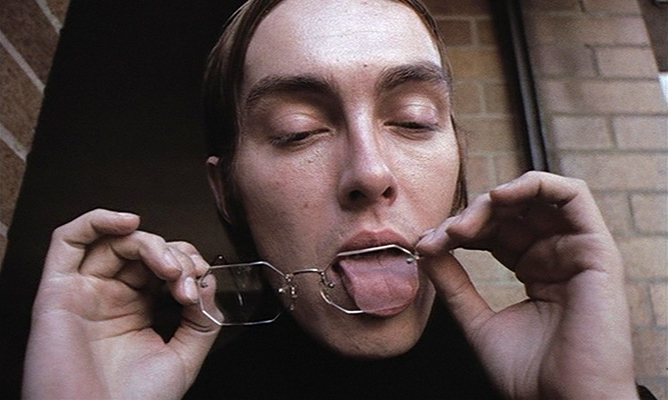
Cronenberg’s sophomore effort offered us a glimpse at many themes that would later on become cornerstones in his career — with sexual perversion, morbid impulsions and body transformation among those gradually creeping in. In that regard, ‘Crimes of the Future’ — not to be mistaken with the director’s latest effort which borrows the same title — is a fascinating prism through which to view his subsequent output.
Saddled with the constraints of a shoestring budget, Cronenberg resorts to obtuse exposition dumps via monotone voice-overs to tell his story, plunging us into a dystopian future where an apocalyptic plague caused by cosmetic products has wiped out the entire population of women. The film undoubtedly has Cronenberg’s fingerprints all over it and conceals an eerily harrowing climax that is not for the faint of heart. Though unashamedly a formative work, ‘Crimes of the Future’ is a solid proof of concept that would find a more distinct expression in future films.
20. Cosmopolis (2012)
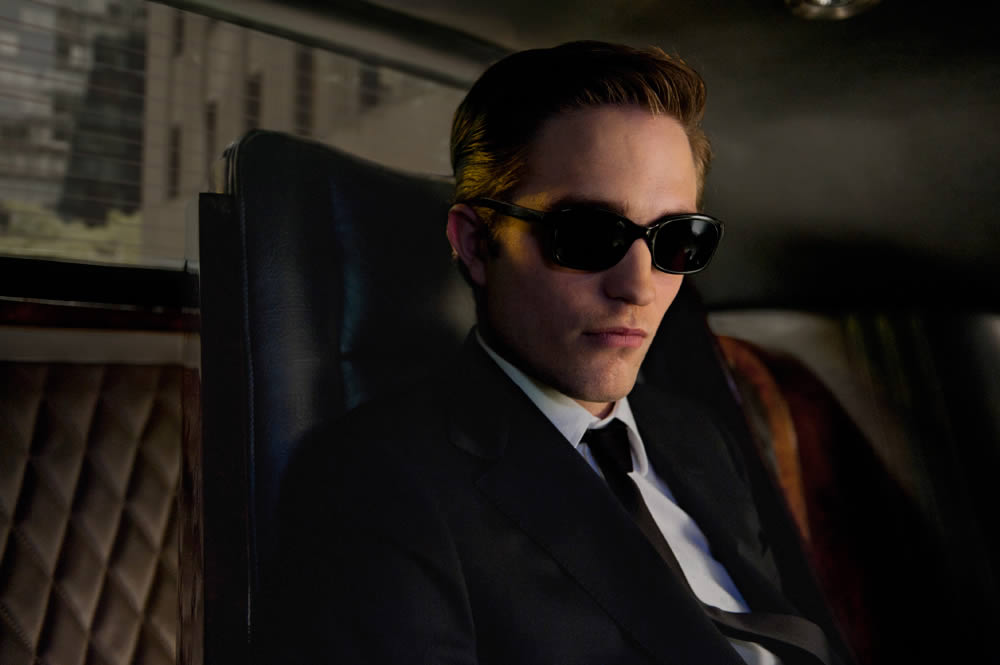
Cronenberg’s penchant for virtually un-adaptable novels — a trend that extends to Ballard’s ‘Crash’ and Burroughs ‘Naked Lunch’ — had proven fruitful in the past but found diminishing returns in this brutally cynical Don DeLillo adaptation. The film centers around Eric Parker, a thoroughly unlikable young billionaire who rides all across Manhattan while navigating an economic crash, assassination attempts and his inner turmoil within the steely confines of his cutting-edge limo.
The decision to cast teen heartthrob Robert Pattinson at the peak of the ‘Twilight’ hysteria was certainly a bold one, but one that admittedly gives an added edge to his solitary persona. As an anti-capitalist satire, the film is hardly insightful; as an insurrectionary manifesto, it falls completely flat. Though his movies have always worn their themes on their sleeve, Cronenberg’s moralizing is far more effective when he subtly incorporates it to his unique, warped universe and not vice versa.
19. Stereo (1969)
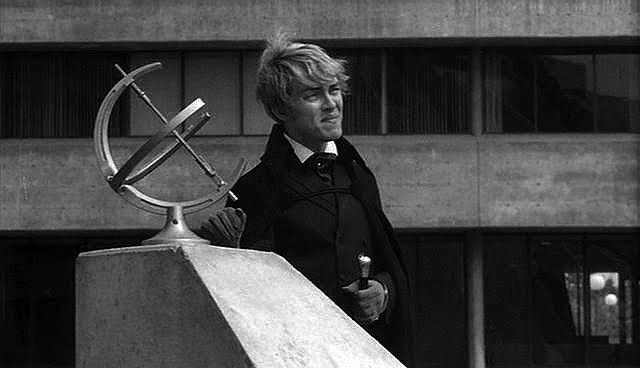
Even as an unproven, 26-year-old aspiring director, David Cronenberg never flinched from ambition. Though the Canadian had a long way until fully hitting his stride and coming to his own artistically, even his rare misfires and minor mishaps are deeply fascinating to watch and analyze thematically. As is the case with every great artist, Cronenberg had to start somewhere, and his first rodeo in the director’s chair ultimately developed into an intriguing, yet not particularly captivating, experiment in style and form that sketches many elements that would become synonymous with his name.
Clocking in just north of an hour, ‘Stereo’ lays the groundwork for the genetic experimentation and sexual ambiguity echoed in ‘Scanners’ and ‘Dead Ringers’ respectively, plunging us into a near-future where telepathically gifted individuals are exploited under the guise of academic research. The film feels painfully amateurish and can be a bit of a chore to sit through, so steer clear unless you consider yourself a hardcore Cronenberg completist.
18. A Dangerous Method (2011)
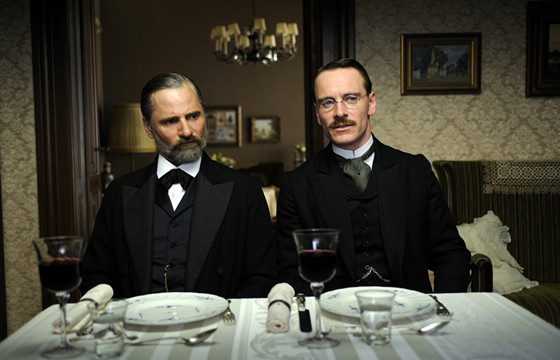
In many ways, most of Cronenberg’s dreamlike narratives exist to inform and amplify his real interest: the continual struggle between the id and the superego; the sum total of our desires, urges and fantasies we tend to bury deep into our subconscious. So, on paper, a loose adaptation about the genesis of psychoanalysis, featuring Sigmund Freud and Carl Jung, seems just like the kind of juicy source material custom fit to his sensibilities.
Chronicling the exploits of its two biggest practitioners might have been seen as the director coming full circle with his work at large. In hindsight, he probably bit more than he could chew. That’s not to say ‘A Dangerous Method’ is a total write-off, the film does provide a meditation on power dynamics, repressed trauma and sexual drive, but much like its source material, it feels elusive to a fault, ultimately proving more interesting to break down and discuss than to actually sit through it.
17. M. Butterfly (1993)
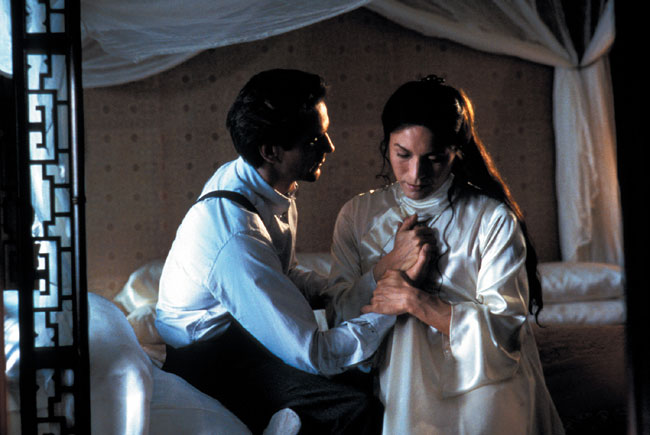
Romance is always representative of something bigger beyond carnal desire in David Cronenberg’s films. In ‘M. Butterfly’, the thorny relationship between French diplomat René Gallimard (Jeremy Irons) and Pekingese opera singer Song Liling (John Lone) serves as a microcosm of broader issues like gender politics, Western fetishization and toxic masculinity in the turbulent milieu of 1960’s China.
The film places these lofty ideas under a messy microscope, juxtaposing them to an elaborate game of submission and deception where its two leads trade blows tearing each other apart. Though the film avoids Cronenberg’s usual body horror fancy altogether, it remains as venomous and bitter as any other entry in this list. Often swept under the rug and dismissed as a perfunctory effort in his career, ‘M. Butterfly’ is an unsung triumph for Cronenberg that feels as relevant as ever and is more than ripe for reevaluation.
16. Maps to the Stars (2014)
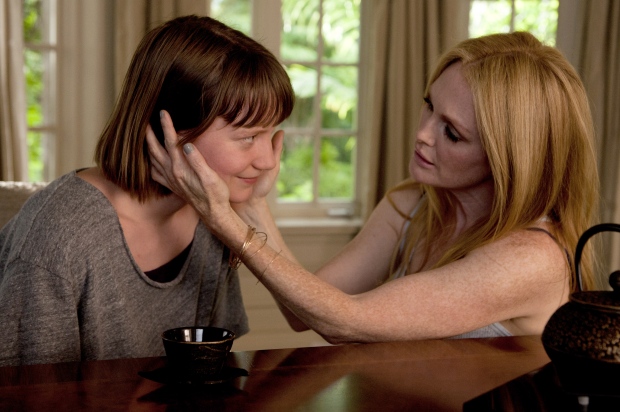
By the time the 2010’s rolled around, David Cronenberg’s disdain for Hollywood was already well-documented. Ever the bastion of independent filmmaking as someone who earned his stripes by slipping the clutches of the studio system, it’s only right that his first and only film shot in Tinseltown resulted in a scathing portrait of Los Angeles that probed the toxic nature of celebrity culture and the entertainment industry — dispelling any lingering doubts as to where the Canadian’s loyalties lie.
Echoing former Hollywood hit pieces — think ‘Sunset Boulevard’, ‘Mulholland Drive’ and ‘The Player’ — ‘Map to the Stars’ treads the line between morbid family drama, surreal ghost story and a smug satire — all without fully settling for either. The result is an explosive mix of incest, grief, artificiality and corruption all blended into a chaotic cocktail that feels thoroughly Cronenberg-ian.
15. Rabid (1977)
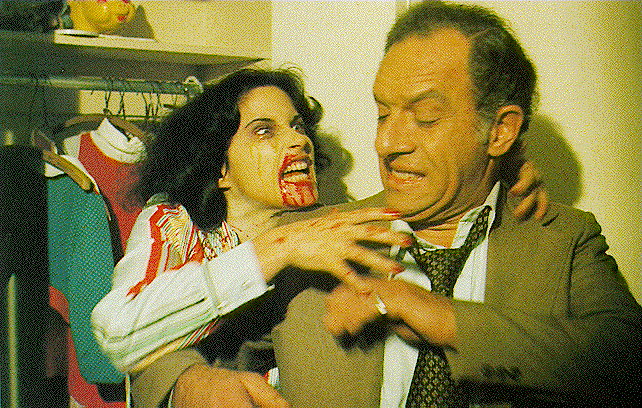
Watching this fan favorite with a global pandemic still fresh in our minds can be an exhilarating if also evocative experience. ‘Rabid’ is the closest thing to a full-blown zombie slasher we’ll ever get from Cronenberg, a film that presents itself as pulp fiction before revealing its true colors as a scarily prophetic cautionary tale on epidemic plagues.
Marilyn Chambers plays Rose, a guinea pig turned femme fatale who undergoes a radical skin-graft surgery following a nearly fatal motorbike accident. As is tradition with Cronenberg’s films, medical experimentation goes south in unexpected ways, in the case of this film creating a vicious, germ-spreading vampiress who develops a deadly phallic stinger under his armpit. The true highlight of the film is the ensuing fallout, with the city of Montreal quickly descending into chaos all while the local authorities prove inadequately incapable of dealing with the outbreak. If recent history is any guide, that premise doesn’t sound nearly as far-fetched now as it once did in 1975.
14. Eastern Promises (2007)
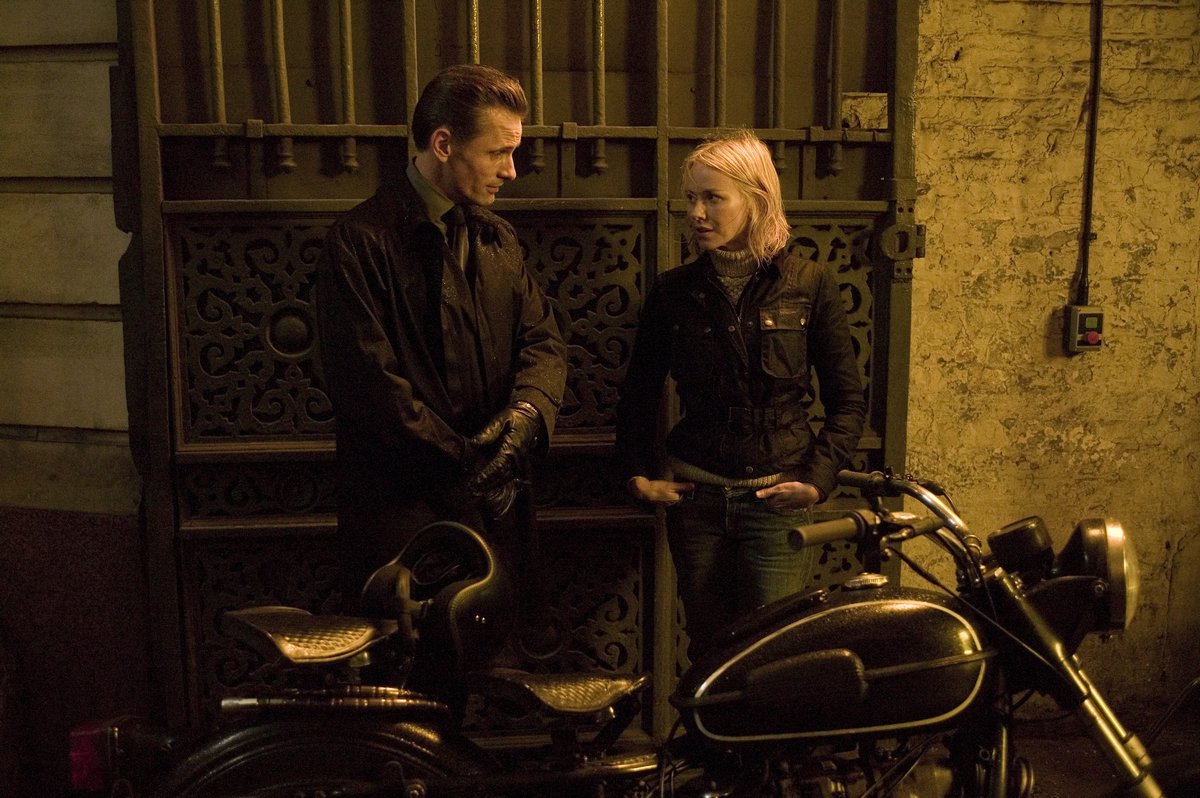
Allow me to preface a controversial ranking that will surely ruffle a few feathers with an obvious statement: ‘Eastern Promises’ is, by all means, a solid and thoroughly engrossing mob flick. At first glance it may seem something of an odd duck, but Cronenberg somehow manages to shape a second-rate script into an insightful examination of cross-cultural relations and conflicting loyalties set against the backdrop of London’s criminal underworld.
The fact that it checks in at the lower half of the present list has more to do with the fact that it is a film that, for the most part, seems to play by the rules. Granted, there’s no shortage of twists, gore and thrills — including a virtuoso bathhouse knife fight that stands toe to toe with any scene in Cronenberg’s catalog — that will delight the most bloodthirsty of his fans. But it never seems interested in upending its own formula, which moves it down a few notches compared to the more transgressive Cronenberg-penned scripts.
13. Shivers (1975)
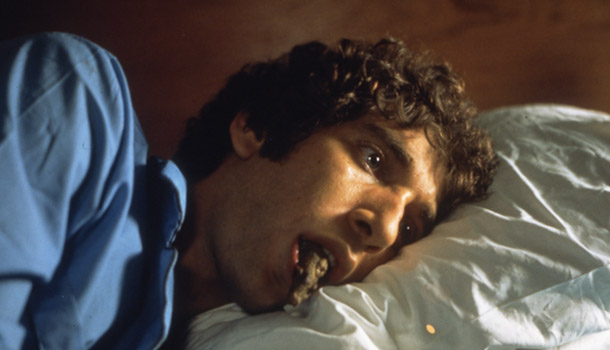
No disrespect to ‘Stereo’ and ‘Crimes of the Future’, but Cronenberg’s true coming-out party would have to wait until 1975 with his first full-length feature, an incendiary release that officially put him on the map as one of the most divisive voices in North American cinema. Plumbing similar themes as his epidemiologic fever dream (‘Rabid’), ‘Shivers’ takes place in a self-sustaining high-rise apartment that becomes a breeding ground for an outbreak of slimy parasites that spread from host to host creating an orgy of sex-crazed zombies.
The concept of sexual desire as a violent disease would be echoed in no shortage of following projects, but ‘Shivers’ stands out as a raw reflection of all the underlying anxiety and fear that clouded above everyone’s minds during the ’70s — a period of time that saw sexual mores loosen up and STD’s on the rise. Though not as polished as the top tier of Cronenberg’s features, ‘Shivers’ delivers plenty of bang for your buck.
12. Spider (2002)
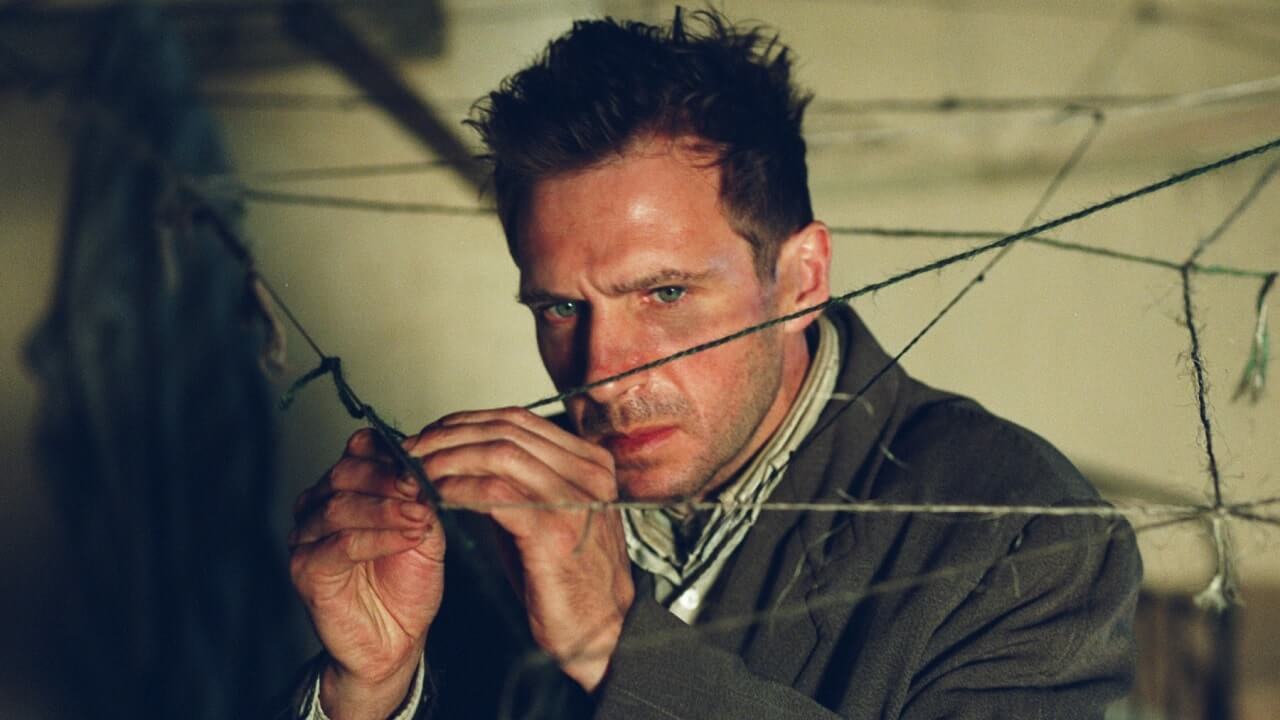
Even by the standards of Cronenberg, ‘Spider’ is something of an acquired taste. Seen at the time as an odd detour for the king of corporeal horror, who decamped from his usual stomping grounds en route to London to make a minimalist psychological thriller that was almost entirely funded out of his own pocket.
‘Spider’ seems to exist on a completely different wavelength than the majority of his films, attacking the viewer’s senses not through an overload of repulsive imagery but through a leisurely-paced descent into madness. Ralph Fiennes plays a mumbling shell of a man who’s desperately trying to piece his life together. His tragic story serves as a brooding study on memory, mental illness and dysfunctional families that shows the lengths to which childhood trauma wraps its tendrils around damaged individuals. ‘Spider’ more than makes up for its pacing issues in spades with one of the most emotionally engaging films the Canadian has churned out.